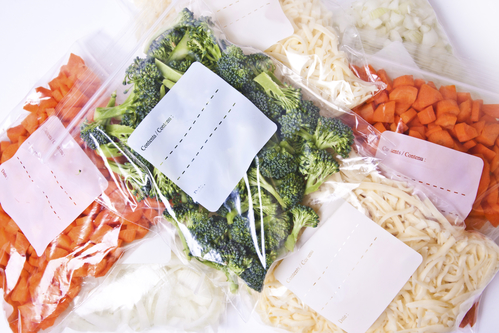
8 Advantages of Using Plastic Packaging Bags for Food Packaging
With the growing population and the rising demand for consumer goods, food and beverage manufacturers are constantly looking for ways to enhance their practices and create additional value. They are also required to ensure that the food product is well-preserved using appropriate packaging till the point of sale. While there are multiple alternatives and materials that can be used to package food, plastic food packaging has always been the most preferred option. Plastic has retained this popularity over the years due to its adaptability and durability. Take a look at some of the other benefits plastic food packaging offer:
- Plastic packaging is a very flexible and adaptable form of packaging, which allows manufacturers to customize its shape, size and style as per their customers’ requirements.
- Plastic packaging is an extremely light-weight storage option that doesn’t require a lot of storage space either. Since they don’t take up much storage space, they are also extremely easy to transport, thus reducing the carbon footprint during transportation.
- Plastic packaging can survive extreme environments and don’t easily degrade in hot and cold temperatures, thus preserving the integrity of the food or beverage inside it. It also protects your products from moisture, oxygen, dust, light and odours.
- Since plastic is extremely durable and resistant to external influences, you can ensure your product is well-preserved at all times. This in turn, helps you avoid losses due to wastage of inventory and also helps you bring about consistency in product delivery, thus increasing brand value.
- The high versatility of plastic allows for ease of reuse and recycling. In fact, these days’ companies are creating specialized plastic bag making machines that help you optimize on the recyclability of plastic.
- The durability offered by plastic packaging also allows manufacturers to print eye-catching, high-quality custom designs, and thereby increase product visibility in a retail setting.
- Plastic packaging is highly economical and can be used by all industries irrespective of their scale of operations. The cost-effectiveness of plastic food packaging is especially beneficial to small-scale product manufacturers as it allows access to standardised packaging options in spite of lower budgets.
- As mentioned above, plastic bags are easily recyclable and require lesser energy to produce in comparison to the other packaging alternatives available. According to a study conducted by United States EPA, plastic bags use 40% less energy to produce and generate 80% less solid waste than paper. The study also revealed a pound of plastic takes 91% less energy to recycle as compared to a pound of paper.
If you are looking for more information on how plastics are beneficial to the food packaging industry or are looking to purchase plastic bag making equipment, contact XL Plastics or call us on +91 265 2830155. Our expert consultants will be happy to assist you with all your queries and help you with all the information you need to make your purchase!
